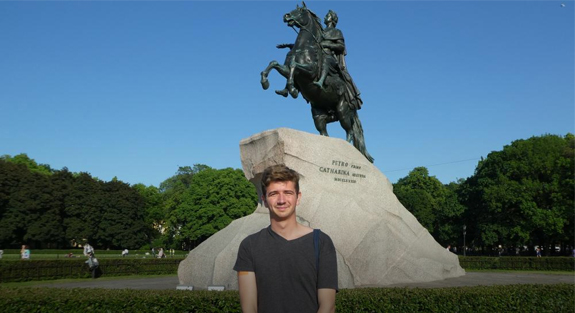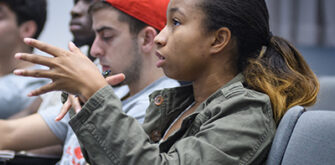
Reading while riding the Trans-Siberian Railway
For his summer research project, Aviv Hilbig-Bokaer, a double-major in comparative literature and international development and social change, immersed himself in the Russian literary canon while journeying 7,000 miles on the Trans-Siberian Railway. He later received a grant from Fulbright Austria to teach English to high school students in Vienna.
This experience has given me such an incredible amount of insight into how I interact with literature and what it is about texts that I value. Literature is such an important component to understanding cultures and building bridges between others and myself.


